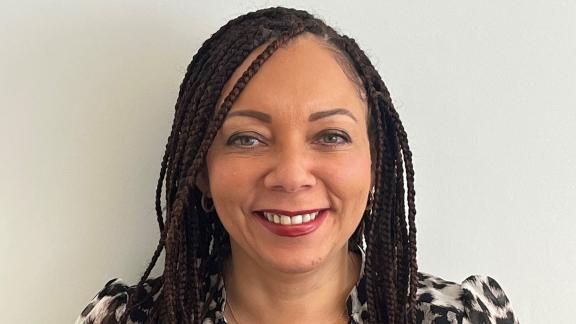The NHS needs to confront the serious problem of racism within the service

With many NHS colleagues directly affected by the riots across England in recent weeks, Patricia Miller draws parallels with her experiences of Britain in the 1980s and questions whether the NHS is confronting honestly the serious problem of racism within the service.
My family came here from Barbados in 1963 as part of the Windrush generation. My father, grandmother and two aunts responded to the call across the Empire to come to England and help with the rebuilding of the country following the Second World War. They thought they were coming to the 'motherland’ and would be welcomed. My grandmother and two aunts became nurses dedicating many years to caring for others. But the motherland wasn’t welcoming. Staff were hostile, patients didn’t want to be treated by black nurses and accommodation regularly had signs outside saying ‘no blacks, no Irish and no dogs.’ General elections were fought on the platform of whether or not you were happy to have a black neighbour.
"I never thought my children would have the same experiences growing up as me and my husband"
Many NHS colleagues have been directly affected by the riots we have seen across England in recent weeks. Assaulted on the way to work and verbally abused by patients in their attempts to care for them. It has reminded me of the 1980s. I never thought my children would have the same experiences growing up as me and my husband. The phrase ‘British values’ has been used a lot and Britain’s pride at being tolerant. But what does this really mean? Tolerance means enduring something you don’t like, not welcoming something you value. Language matters.
We have taken comfort in the media narrative that this is due to a minority of right-wing groups. Is this true? We often refuse to acknowledge racism, as our view of it is overt behaviours and language like that seen this week. The reality is it is much more insidious and prevalent in society and all parts of public services.
In November 2018, Harriet Harman, as chair of the Human Rights Select Committee, conducted a survey of those from African and Caribbean Communities. They were asked if they felt their human rights were taken as seriously as those of their white counterparts. Over 75 per cent responded ‘no’. When asked why, they said that they didn’t have a right to an education, a right to good health, a right to a fair trial.
"…our staff surveys every year tell us that it is not safe for global majority staff to work in the NHS"
If we turn our attention to the NHS, our staff surveys every year tell us that it is not safe for global majority staff to work in the NHS. We are more likely to be bullied, disciplined, referred to professional regulators and sanctioned.
A number of reviews in the last decade have given us a clear message.
The Snowy White Peaks report by Roger Kline in 2014 clearly outlined the impact racism and a lack of diversity in leadership was having on the NHS’s ability to deliver safe care.
In 2022, the NHS Confederation’s Shattered Hopes report found that more than half of the black, Asian and minority ethnic NHS leaders who were surveyed for the report considered leaving the NHS in the last three years because of their experience of racist treatment while performing their role as an NHS leader.
Also in 2022, a survey by the British Medical Journal found that 76 per cent of respondents said they had been subjected to at least one incident of racist behaviour in the previous two years.
"These are just a selection of the reports published, giving us the same message: The NHS still has a serious problem with racism"
This year a report written by the human rights charity BRAP found that 71 per cent of UK-trained staff from global majority ethnic backgrounds complained of race discrimination, finding many NHS organisations’ response to be to challenge or ignore the allegations.
These are just a selection of the reports published, giving us the same message: The NHS still has a serious problem with racism.
With regards to health and wellbeing, the connection between lack of cultural competence, poor understanding of diverse communities, institutional and structural racism and poor access and health outcomes is clear.
People from African and Caribbean backgrounds are more likely to have mental health issues and less likely to receive treatment.
Some of the worst health outcomes are seen in people from Bangladeshi and Pakistani communities.
Rates of CVD and diabetes and infant and maternal mortality are much higher in South Asian and black communities.
People from African and Caribbean backgrounds are more likely to have mental health issues and less likely to receive treatment. Frequently they are referred to through the criminal justice system.
"If the NHS cannot face up to the fact it is institutionally racist, can it really root out racism from the service we all love?"
On his appointment as Secretary of State for Health and Social Care, the CEO of Brap asked Streeting to make tackling racism in the NHS a priority. 25 per cent of nurses and 50 per cent of doctors in training entering the NHS this year are from global majority communities. Can we afford not to make this a priority?
In 2022, the annual NHS ConfedExpo conference was fortunate to have David Olusoga as a speaker. I asked him if Britain’s inability to confront honestly its role in slavery was one of the reasons why it cannot address racism in its society. He agreed it was. My grandmother had a saying when I was a child: “If you don’t know where you come from, how can you know where you are going?”
Looking back at my 33 years in the NHS and the years of abuse I have faced from staff and patients, I am asking myself one question: If the NHS cannot face up to the fact it is institutionally racist, can it really root out racism from the service we all love?
Patricia Miller is chief executive of NHS Dorset Integrated Care Board. You can follow Patricia on LinkedIn.



